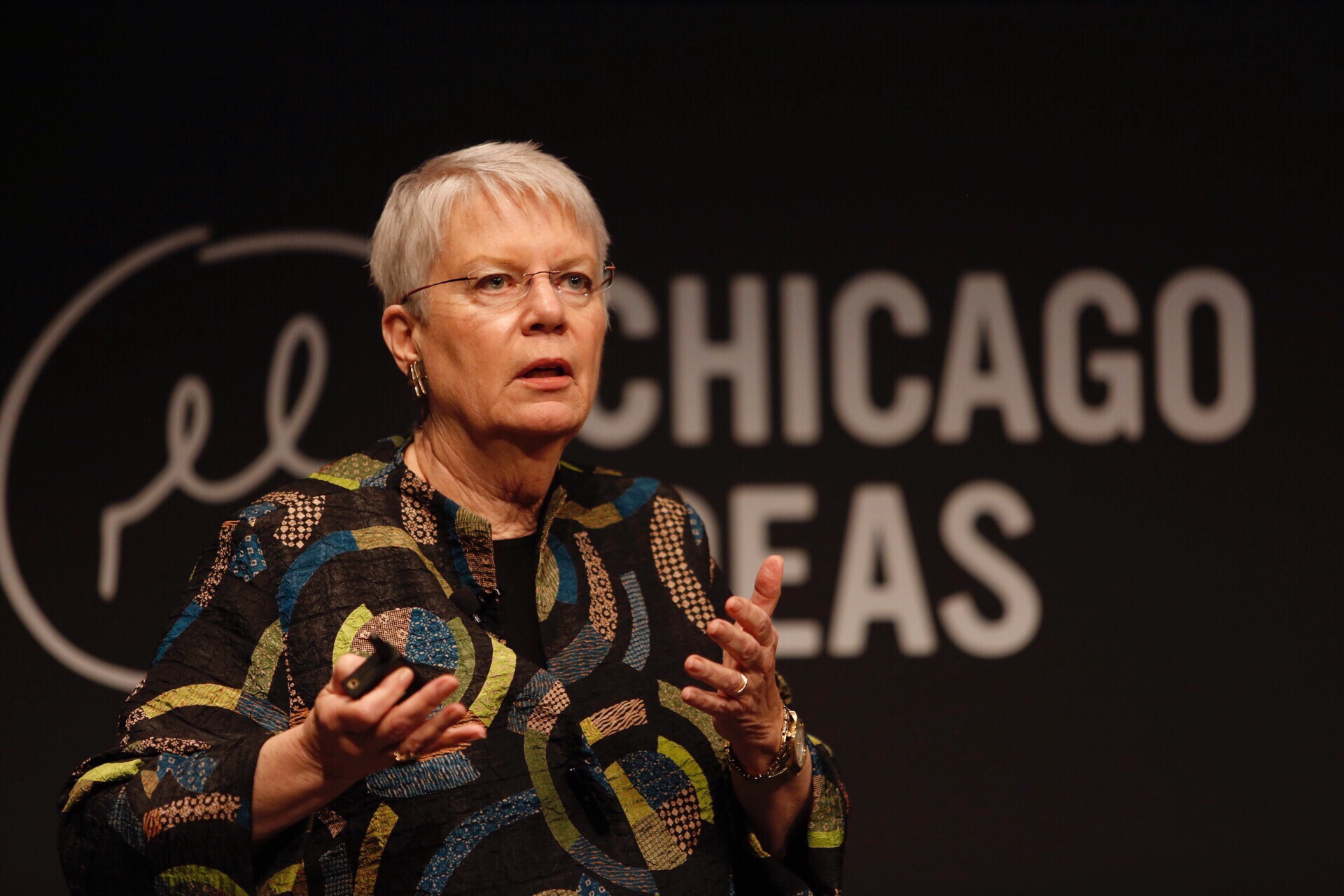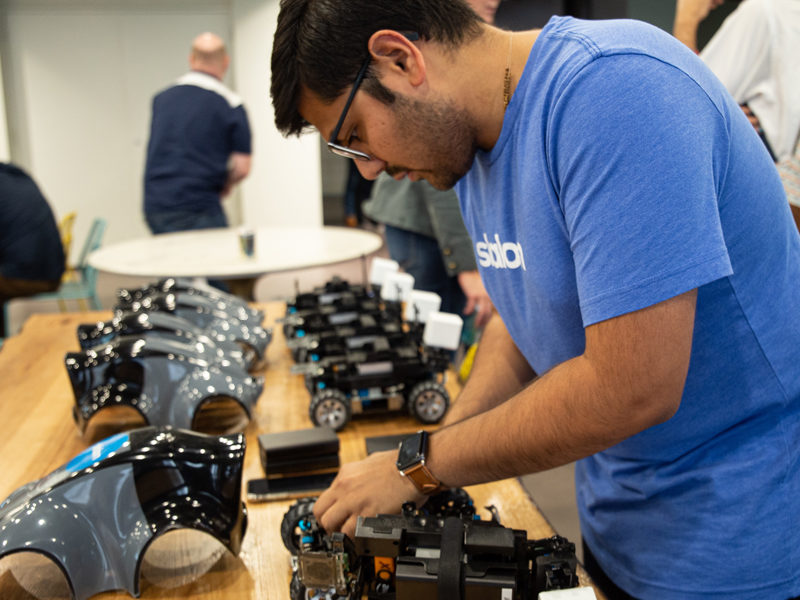
Is it possible to know what our future holds?
In the closing event of this year’s Curiosity Series, Chicago Ideas hosted a Conversation between three of the leading minds studying what the future holds. Dartmouth physicist Marcelo Gleiser has spent his career working to bridge the gap between science and the humanities. Noting that the two “speak different languages,” this Conversation helps them find a shared vernacular. Alongside philosopher Patricia Churchland and astronomer Jill Tarter—who served as the basis for Jodie Foster’s character in the film Contact—they discussed the future of intelligence by exploring three different aspects of it: human, machine and extraterrestrial.
Here, they made strides to demystify these topics, breaking them down until they felt truly digestible. We’ve highlighted what we learned about each of these subjects, giving you a bit of perspective into what our future holds, and whether or not we’ll be making contact with aliens—or being outsmarted by artificial intelligence—anytime soon.
Will artificial intelligence take over the world?
“Humans can do actions with common sense, but machines draw on widespread background knowledge to make a behavior,” said Churchland, explaining that, while the artificial intelligence program AlphaGo was able to beat a human being at the board game Go, its process of learning how to play the game differs from ours. Churchland pointed out that machine intelligence—and even the most sophisticated artificial intelligence programs—are based on pattern recognition, not critical thinking. Over time, these machines gain the ability to comprehend nuance, as they’re able to recognize human handwriting and human faces, but they have a harder time adapting to changes than we do. “If you change one tiny rule in a very minor way, AlphaGo has to start from scratch,” said Churchland, highlighting that, even if a machine is now able to beat us at a board game, it’s very easy for us to regain the upper hand.
Can we make contact with extraterrestrials?
In explaining the vastness of the cosmos, Jill Tarter made a sobering comparison. Tarter compared space exploration to our journeys into the deep sea, pointing out that, in terms of scale, the depth of our exploration in outer space is equivalent to pulling a 12-ounce glass of water from the Earth’s oceans and using that as the basis of our studies. “We can now tell you, with very great statistical certainty, that there are more planets than stars out there,” said Tarter, going on to remind us that every star we see means there are planets near it utilizing it as their sun. Because of this, Tarter believes that extraterrestrial life has to exist, even if we can’t see it. But unlike Stephen Hawking, who believes these aliens would be the undoing of our civilization, Tarter believes that any society advanced enough to travel through deep space is also intelligent enough to have moved beyond violence as a means of control. “You can’t get the job done if you’re not kinder and gentler,” said Tarter, before reminding us that, these visitors would be so far ahead of us on a pure intelligence level that, “If they land here, they’re going to write the rulebook.”
What does our future hold?
As for humanity, it’s hard to say what exactly comes next. It’s easy to see trends in things like science and culture, but it’s very hard to predict where we’ll be more than a decade in advance. Churchland debunked the myth that science can reliably see the future, reminding us that those predictions people make are exactly that. “Realistic prediction in science is 5-10 years out. After that, it’s just guessing,” she said, allowing us to remember our future isn’t set in stone. If anything, it’s more malleable than ever.




